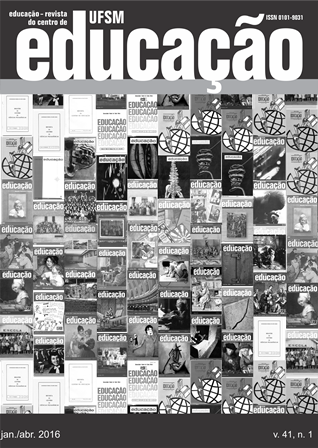The Physical Education at school and affectivity: the construction of self-respect
DOI:
https://doi.org/10.5902/1984644414526Keywords:
Physical Education, Moral Development, Affectivity.Abstract
In the current educational debate, the concern about affective aspects in the classroom has been one important issue. The aim of this article was to present studies that explain constructivist theoretical assumptions regarding the development of affection in students, willing to make a link between its relationships and contributions within the construction of affection in Physical Education classes. Methodological resource was used as literature review in this study. We conclude that by teaching some contents of the discipline there are several possibilities of favoring the development of self-respect starting with the recovery and questioning of moral virtues so that students can take consciousness of the representations they have from themselves, their group, and their elected life projects. Therefore, they will be able to build representations in which moral virtue may play a central role in their identity.Downloads
Published
How to Cite
Issue
Section
License
Declaration of originality
We declare that all articles present in the journal Educação (UFSM) are originals and were not submitted for publishing on any other publication, as a whole or a fraction. We also declare that, after being published by Educação (UFSM), a paper will not be submitted to another journal within two years. After this time, our journal transfers the publishing rights to the authors, with a permit granted by the Editorial Council.
We also acknowledge that the originals’ submission to Educação (UFSM) implies on a transference of copyright for physical and digital publishing to the journal. In case of noncompliance, the violator will receive sanctions and penalties predicted by the Brazilian Copyright Protection Law (n. 9610, dated 19/02/98).
Attribution 4.0 International (CC BY 4.0)
This license lets others remix, transform, and build upon the material for any purpose, even commercially, and copy and redistribute the material in any medium or format.

This work is licensed under a Creative Commons Attribution 4.0 International (CC BY 4.0)






